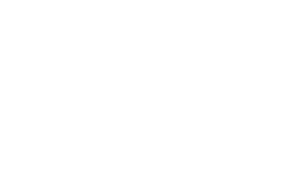Why break up bid for Vodafone looms
- Published
- comments

"The status quo for Vodafone is probably unsustainable"
Around the turn of the millennium, Vodafone was the boldest and most ambitious of British companies on the global takeover trail - and its share price rose on the expectation that its acquisitions would be good for investors' wealth.
How times have changed.
This year Vodafone's share price has soared because of the belief that this giant mobile phone conglomerate will be broken up, in the coming months.
Today its shares jumped more than 6% at one stage, because of a rumour that there would be a joint bid from the US telecoms giants Verizon and AT&T.
This was some rise: 6% of Vodafone is worth well over £5bn, or more than the value of quite a few FTSE 100 companies.
No statement has so far been forthcoming from Verizon or AT&T. But after all the weeks of febrile speculation about Vodafone, it is reasonable to assume that the UK's Takeover Panel and the Financial Conduct Authority would want investors to know what is going on, and would therefore put pressure on putative bidders to show their hand.
So maybe it won't be long before we know their intentions.
Here is why the status quo for Vodafone is probably unsustainable.
At tonight's night's closing share price of of 192p, Vodafone's market value is £94bn - which is not small, by any standards.
However, analysts believe that just Vodafone's 45% in Verizon Wireless, its US mobile business jointly owned with the eponymous Verizon, is worth a fraction under £90bn.
On that analysis, everything else that Vodafone owns - its huge operations in the UK and eurozone, its big businesses in emerging markets - are worth around £5bn.
Now these businesses may not be performing particularly strongly. But most investors would say they are worth massively more than £5bn.
The point is that the free cash flow generated in a single year by these non US operations is well over £5bn.
So although takeover gossip has pumped up Vodafone's share price by almost a quarter since the start of the year, the company's market price is still significantly below what many would see as the combined value of its parts.
Or to put it another way, everything it owns outside the UK has an implicit valuation in the market of more-or-less nothing - which, some would say, is bonkers.
Now the lesson of history is that bonkers valuations don't persist forever - especially if they are transparent.
Something will happen to unlock that value.
What would that something be?
Well the most likely thing is that Verizon will make an offer for Vodafone's 45% stake in Verizon Wireless - because it has been something of an open secret for months that Verizon wants complete control of Verizon Wireless, and it is pretty clear to me that it doesn't want to own all of Vodafone.
My assumption is that at some point in the coming weeks, Verizon will make an offer to Vodafone to buy this stake - and may also make its offer known, because it may believe that Vodafone's shareholders would put pressure on Vodafone's management to crystallise the valuation of the company's assets.
What will Vodafone's executives and board do in those circumstances?
My strong sense is that the executives, led by the chief executive, Vittorio Colao, would prefer a conventional merger with Verizon rather than the sale to Verizon of its most valuable asset.
But, as I mentioned, I don't think that option will be available.
And in the end, he and the board will have to do what their owners desire.
If a bid is forthcoming, he and his executives shouldn't be too upset - because they have all been made considerably richer by the takeover speculation.
Their performance related rewards are determined in large part by total shareholder return, which is dominated by what has happened to the share price.
Or to put it another way, Mr Colao and his senior colleagues will collectively reap millions from how Vodafone's share price has soared since the turn of the year.
Shareholders may not complain about that, if they're enriched too. But they might notice that the rise in the share price, and in the wealth of management, is all to do with the perceived value of an asset, 45% of Verizone Wireless, which Vodafone doesn't actually manage.
Which is just another illustration of how top executive pay retains a huge lottery element, even when remuneration consultants think they're being scientific and linking pay to performance.
UPDATE 11.06 GMT
Verizon has tonight confirmed it wants to buy Vodafone's 45% stake in Verizon Wireless but won't bid for the whole of Vodafone.